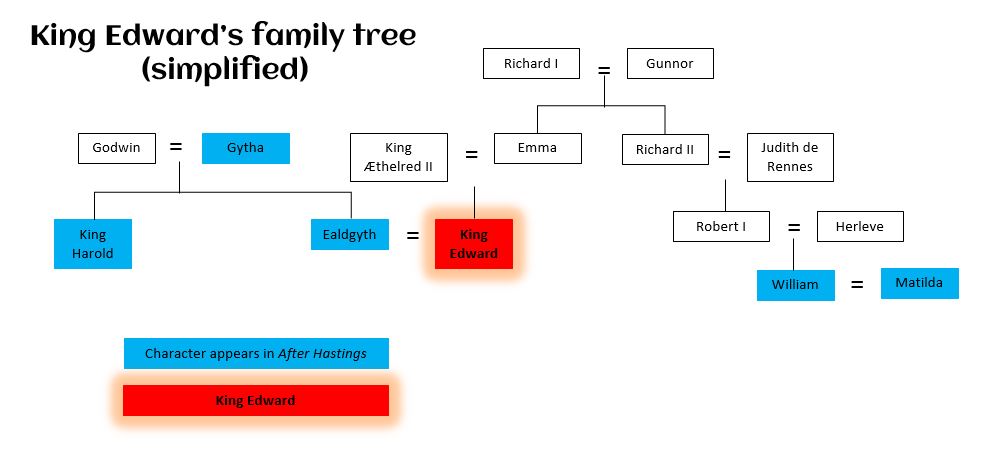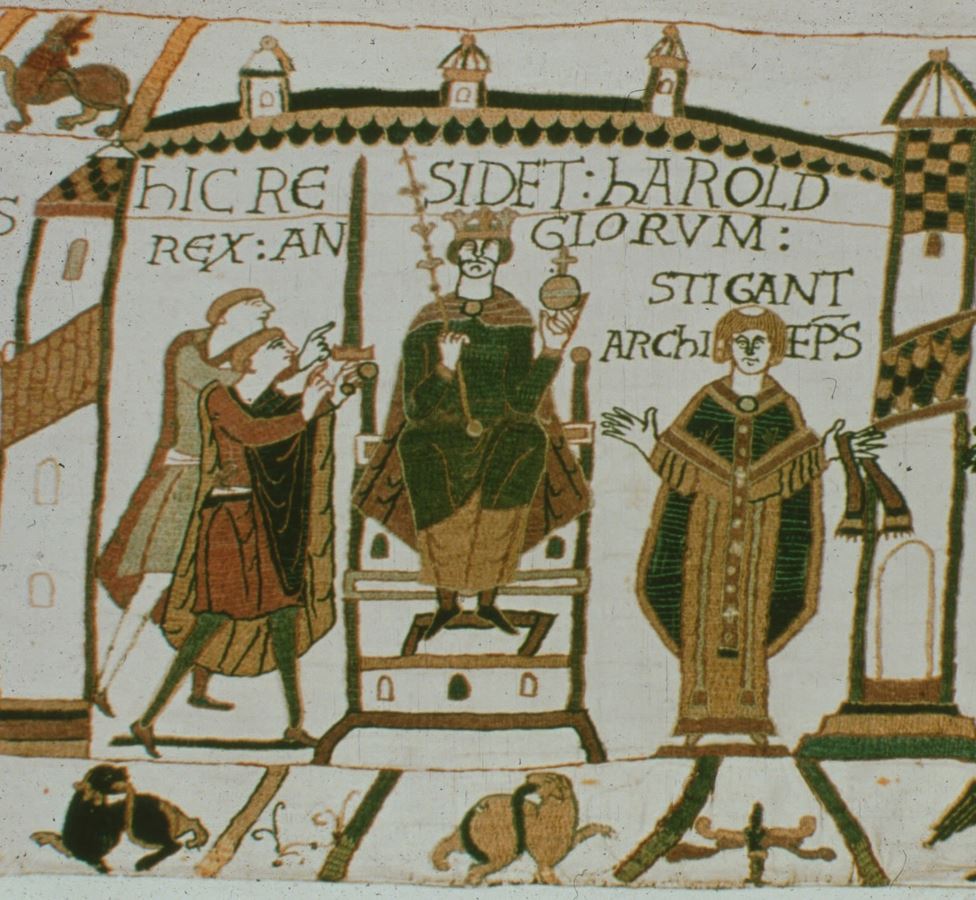 |
William of Normandyc.1027 - 1087 |

 King Edward's family tree, showing tie to William |
Born the illegitimate son of Duke Robert I of Normandy and his mistress, Herleve, William became the Duke of Normandy when his father died in 1035. The early years of his rule were marked by an anarchic period in which the Norman nobles tested his authority, not entirely willing to live under the rule of a bastard. Among his allies were his half-brothers, Odo of Bayeux and Robert of Mortain, who were Herleve's sons with her husband, Herluin de Conteville. It took several years, but in 1047, he managed to quash a rebellion and turn his attention to solidifying his power. During a visit to England in 1051, his cousin, King Edward, who had spent many years at the Norman court before becoming the English king in 1042, may have promised to make William his heir, although Edward didn't have the right to do so under English custom. He also married Matilda of Flanders in the 1050s, thereby cementing an alliance with Count Baldwin. In 1064, when Earl Harold was taken captive by Guy of Pontheiu, William extracted a pledge that Harold would support William's claim to the English throne after Edward's death. In 1066, Edward died and after the English elected Harold to succeed him, William planned an invasion, receiving the approval of Pope Alexander II for the venture. William's invasion was stalled for seven weeks due to inclement weather, giving Harald Hardraada and Tostig Godwinsson an opportunity to invade England first, although they were defeated and killed at Stamford Bridge two days before the Norman fleet set sail. In the world of After Hastings, William was soundly defeated at Hastings and retreated to Normandy, where his health began to fail him. Rather than pursue his claim to the English throne, he realized that he had given his barons an opening to rebel against him and would need to maintain his power within Normandy while Harold tried to maintain his own grip on England, facing a variety of unforeseen issues, both within and without. In our own world, Harold was killed at Hastings and William went on to conquer all of England, although the process took him several years and he faced rebellion from the Northern earls, including Edwin, Morkere, and Gospatric as well as Edgar the Ætheling and King Sweyn of Denmark. Eventually, in 1070, he led a scorched earth campaign through England's north, destroying the lands and economy for centuries. In 1069, he appointed Thomas of Bayeux and Lanfranc as archbishops of York and Canterbury and managed to bring England under his control. William did not spend a lot of time in England and probably viewed it as a way of raising funds to make sure he could support his actions on the continent, his primary focus. Throughout the 1070s, he faces a series of revolts in Normandy and surrounding areas and in 1076, he suffered his first defeat in battle. His eldest son, Robert Curthouse, rebelled against his father, a situation which was not fixed until 1080 when William declared that Robert would be his successor in Normandy. In 1085, William ordered that England be surveyed so he knew exactly what he owned. The survey, known as the Domesday Book, recorded all of the property throughout England, including who held it, who they swore their allegiance to, and who had held the land prior to the invasion. Most likely originally conducted for tax and control purposes, the work provides an incredibly detailed view of England for historians. William died on September 9, 1087. Following his death, his nobles scrambled to ensure their security and position. At William's funeral, a local resident claimed that the church where William was being buried had been built on land illegally taken from him. He was paid off and the funeral continued, but in the process of burying William, his body erupted, filling the church with an awful stench. Robert became Duke of Normandy and William's second son, William Rufus, became King of England. William's third son, Henry, would receive land and money, and would eventually succeed both brothers. |

Return to cast of characters